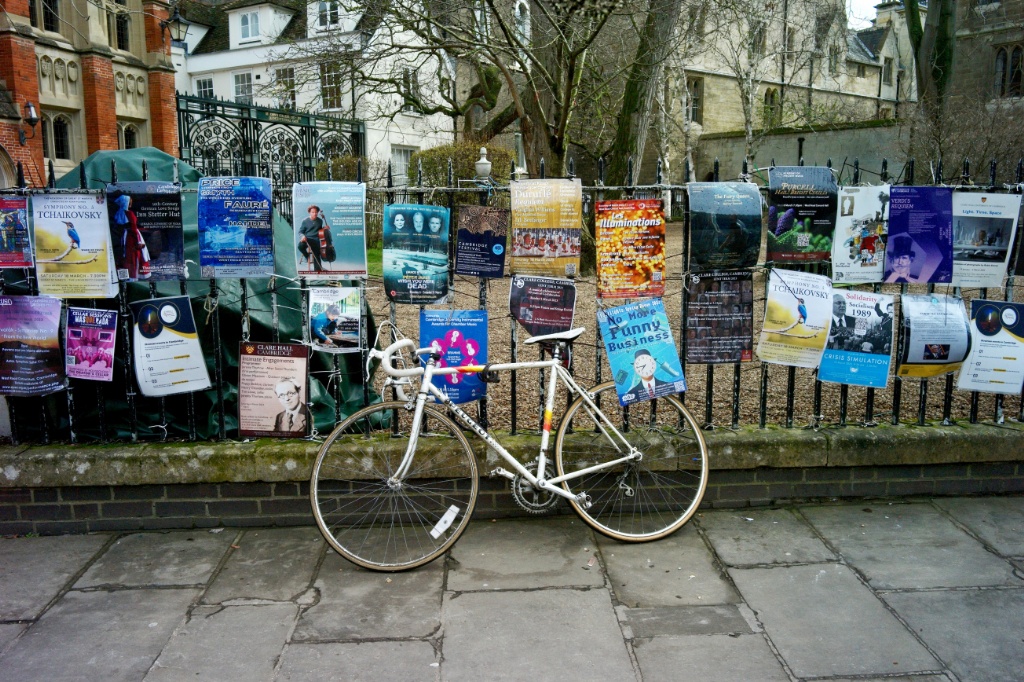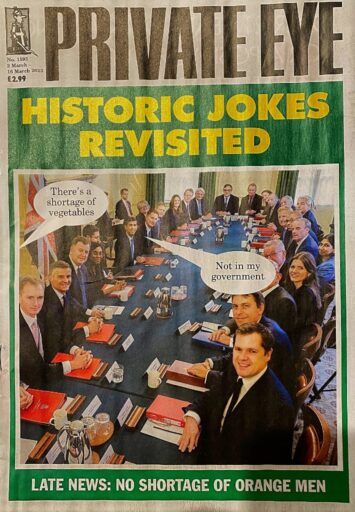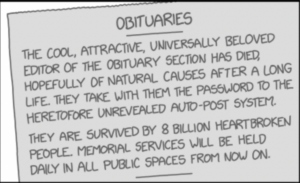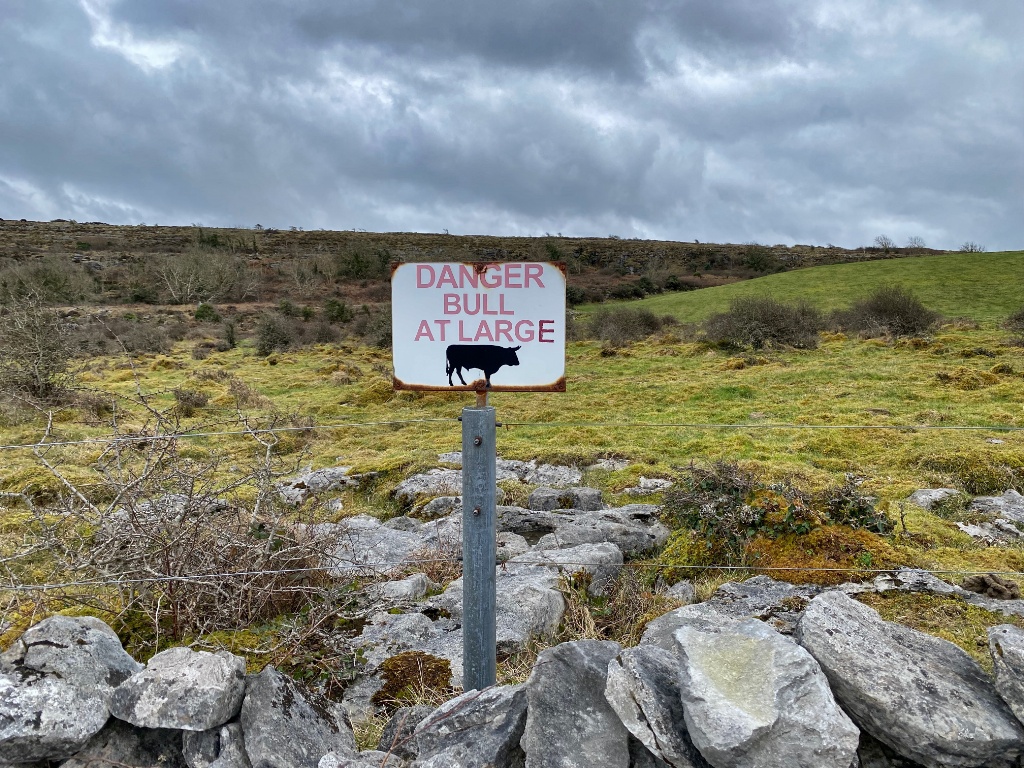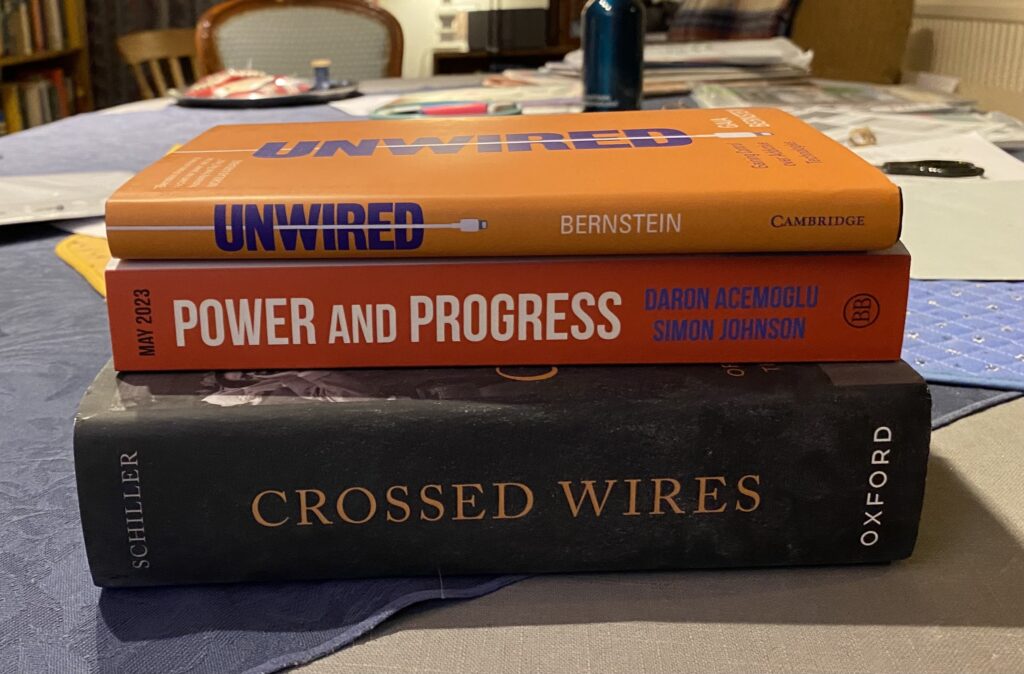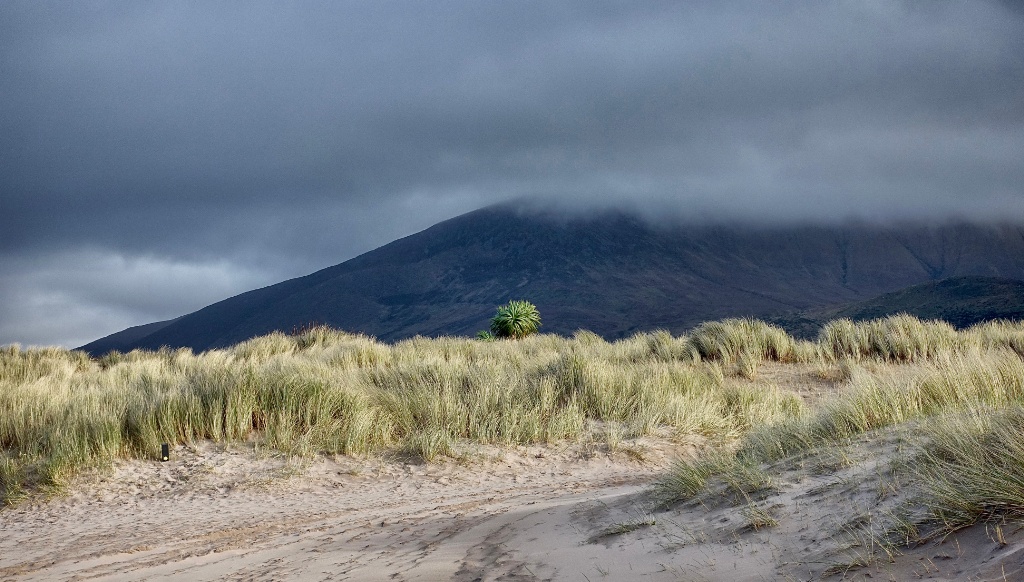Searching for Tim

View from Tim Robinson’s window
We’ve just come back from ten days in Ireland, journeying up and down the country’s wonderful West coast — which some marketing genius in the Tourist Board famously rebranded as “the Wild Atlantic Way”, thereby unleashing a profitable torrent of eager tourists upon an unsuspecting landscape.
For a couple of days we stopped in Connemara, a rough-hewn but beautiful part of Connacht, which also happens to be where my father’s family come from. On one of those days we headed for Roundstone, a small fishing village about 50 miles north-west of Galway. What brought us there was my desire to visit ‘Folding Landscapes’, the little firm that the great cartographer Tim Robinson and his wife Máiréad created to publish his astonishing handmade maps of the Aran Islands, the Burren and Connemara. I hadn’t been there for at least two decades, but I had a firm memory of how the company’s office looked out on the village pier.
When we arrived, though, there was no sign of the office. Because it was out of the tourist season, the village was exceedingly quiet, with only the post-office and one other shop open. We tried the PO first, inquiring about Tim’s whereabouts. The young woman behind the counter was not a local and couldn’t help, so she directed us to the general store across the street. Entering it, I asked the middle-aged lady who ran it if she knew where I could find Tim.
At this her welcoming smile turned to an expression of concern. It turned out that Tim had died of Covid in the early weeks of the pandemic, and that Máiréad had passed away two weeks before him. They had both been in London at the time. But their ashes had been brought back to Roundstone, local fishermen had launched boats to scatter their ashes in the bay, a group of traditional musicians had sent them on their way from the pierhead, and the President of Ireland, Michael D. Higgins, had travelled down from Dublin to honour one of the country’s greatest contemporary writers and scholars.
So Tim and Máiréad had a great send-off, but my hopes of obtaining a copy of his map of Connemara were dashed. I felt mortified that I had missed his passing. The only thing I could think of doing was to photograph the view that greeted them every morning.
He was a formidable scholar and a lovely writer. His books on Aran and Connemara are masterpieces. I met him only once, when he was the 2011 Parnell Fellow at Magdalene College and he signed my copy of his book on Connemara.
Here he is, writing about Wittgenstein’s sojourn in Connemara in 1948:
In 1948 Ludwig Wittgenstein fled the seductions of Cambridge, where he was the acknowledged star of the Philosophy Department, to a friend’s holiday cottage in Roscoe, a fishing hamlet on a rugged peninsula separating the mouth of Killary Harbour from the bay of Little Killary. “I can only think clearly in the dark,” he said, “and in Connemara I have found one of the last pools of darkness in Europe.” His thought, a mental ascesis that matched his frugal and solitary existence there, was directed to an end, or rather to its own end. As he had written, “The real discovery is the one that makes me stop doing philosophy when I want to. The one that gives philosophy peace, so that it is no longer tormented by questions which bring itself into question.” The particular question preoccupying him at this time concerned the difference between seeing something, and seeing it as something. For instance, his farming neighbours see this strange figure in the landscape, and see him as a madman. There he stands, stock still for minutes on end, staring at something he has drawn with his stick in the mud of the roadside. If I see this diagram (a roundish shape with a dot in the middle, and two long appendages on one side) first as a duck’s head and bill, and then as a rabbit’s head and ears, not a particle of the mud has moved. What then has changed — a mysterious mental picture I can show to no one else? The temptation, he writes, is to say “I see it like this”, pointing at the same thing for “it” and “this”. Hence arises a philosophical pseudo-problem. But by analysing how we use language in such cases, we can “get rid of the idea of the private object”. His neighbours, though, know a duck-rabbit when they see one, and forbid him to cross their land lest he frighten the sheep.
Quote of the Day
“If my doctor told me I had six minutes to live, I wouldn’t brood. I’d type a little faster.”
Musical alternative to the morning’s radio news
Sorcha Richardson | Oh Oscillator
Link
By a stunning young singer we were lucky enough to run into in Kerry.
Long Read of the Day
Social Media is a Major Cause of the Mental Illness Epidemic in Teen Girls. Here’s The Evidence.
For years I’ve been arguing (for example here) that social media — and especially Instagram — is toxic for teenage girls. The response of the tech industry — and especially of Meta (neé Facebook) consistently reminds me of the tobacco industry’s long campaign to undermine the idea that cigarette smoking caused lung cancer. The roles of media and academia in the controversy has also reminded me of their inertia and indolence in that long-running saga.
All of which is a long-winded way of explaining why I welcome this long and considered essay by the social-psychologist Jonathan Haidt reviewing the research and evidence of the impact of social media on girls.
Here’s how it opens:
A big story last week was the partial release of the CDC’s bi-annual Youth Risk Behavior Survey, which showed that most teen girls (57%) now say that they experience persistent sadness or hopelessness (up from 36% in 2011), and 30% of teen girls now say that they have seriously considered suicide (up from 19% in 2011). Boys are doing badly too, but their rates of depression and anxiety are not as high, and their increases since 2011 are smaller. As I showed in my Feb. 16 Substack post, the big surprise in the CDC data is that COVID didn’t have much effect on the overall trends, which just kept marching on as they have since around 2012. Teens were already socially distanced by 2019, which might explain why COVID restrictions added little to their rates of mental illness, on average. (Of course, many individuals suffered greatly).
Most of the news coverage last week noted that the trends pre-dated covid, and many of them mentioned social media as a potential cause. A few of them then did the standard thing that journalists have been doing for years, saying essentially “gosh, we just don’t know if it’s social media, because the evidence is all correlational and the correlations are really small.” For example, Derek Thompson, one of my favorite data-oriented journalists, wrote a widely read essay in The Atlantic on the multiplicity of possible causes. In a section titled Why is it so hard to prove that social media and smartphones are destroying teen mental health? he noted that “the academic literature on social media’s harms is complicated” and he then quoted one of the main academics studying the issue—Jeff Hancock, of Stanford University: “There’s been absolutely hundreds of social-media and mental-health studies, almost all showing pretty small effects.”
In this post, I will show that Thompson’s skepticism was justified in 2019 but is not justified in 2023. A lot of new work has been published since 2019, and there has been a recent and surprising convergence among the leading opponents in the debate (including Hancock and me). There is now a great deal of evidence that social media is a substantial cause, not just a tiny correlate, of depression and anxiety, and therefore of behaviors related to depression and anxiety, including self-harm and suicide…
As I say, it’s long. What’s particularly striking (to me anyway) is his insight that the standard approach of treating social-media use as if it were analogous to imbibing a particular narcotic is far too reductionist. What it ignores is the fact that the ubiquity of social media changes the entire media ecosystem in which young people are now growing up. As I read Haidt’s essay, I kept thinking about Neil Postman’s The Disappearance of Childhood and his argument that radical changes in our media environment — as in (i) the switch from orality to print, and (ii) then from print to broadcast TV — changed our definitions (and conceptions) of childhood.
Crypto is intended to be hard to regulate, but at least the Treasury wants to have a go
Last Sunday’s Observer column:
For my sins, I have been reading Future financial services regulatory regime for cryptoassets, 82 pages of prime Whitehall verbiage that was published recently, setting out HM Treasury’s plans to govern the clouds and hold back the tides.
It opens with the statutory ringing endorsement by Andrew Griffith, economic secretary to the Treasury. He reminds readers that the government’s “firm ambition is for the UK to be home to the most open, well-regulated and technologically advanced capital markets in the world” – which “means taking proactive steps to harness the opportunities of new financial technologies”. He further believes that “crypto technologies” can have a profound impact across financial services and that “by capitalising on the potential benefits offered by crypto we can strengthen our position as a world leader in fintech, unlock growth and boost innovation”. Cont’d p94, as they say in Private Eye.
Billed as a “consultation and call for evidence”, the document invites our views on these important matters. As a public-spirited columnist, it would be churlish to refuse the invitation. So here goes…
Do read the whole thing.
My commonplace booklet
From the Observer:
The late Roald Dahl’s publisher, Puffin, caused controversy this month for hiring “sensitivity readers” to rewrite his books with hundreds of revisions so that they “can continue to be enjoyed by all today”.
In the new edition of Charlie and the Chocolate Factory, Augustus Gloop – a glutton for chocolate – is now just “enormous” rather than “enormously fat”; in The Twits, Mrs Twit is no longer “ugly and beastly”, just “beastly”, and in The Enormous Crocodile, “we eat little boys and girls” has been changed to “we eat little children”.
Responding to the criticism, Puffin announced last Friday that they will publish both the original texts and reworked editions.
This Blog is also available as a daily email. If you think that might suit you better, why not subscribe? One email a day, Monday through Friday, delivered to your inbox. It’s free, and you can always unsubscribe if you conclude your inbox is full enough already!

